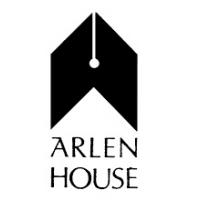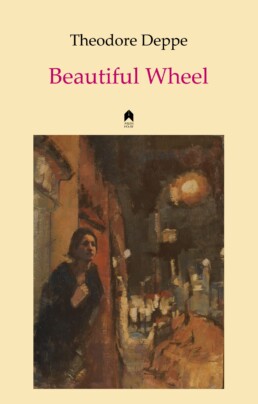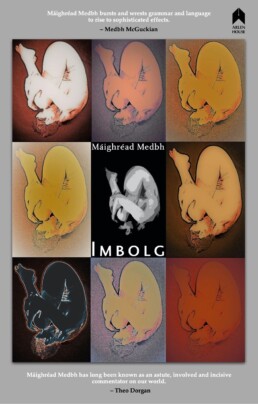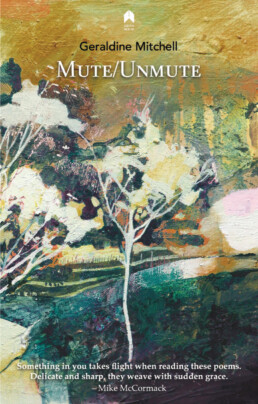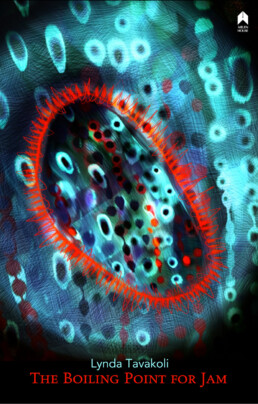Beautiful Wheel
Praise for the poetry of Theodore Deppe:
‘Theodore Deppe’s scrupulous attention is tender, uncompromising, and full of a rare quality of moral weight.
Witness has been raised to an art; everything is at stake in these painstaking, loving observations.’ – Mark Doty
‘Deppe mediates his subjects with a Chekhovian eye and heart in these extraordinary poems.’ – Stephen Dunn
‘One comes away from these compact lyrical narratives with a sense that whatever the poet’s eye or mind has fallen
on, been compelled to attention by, is somehow cared for, cherished, allowed to be its own full self.’ – Eamon Grennan
‘In these elegant and searing poems, Theodore Deppe gives voice to the full complexity of human character,
creating a world that is charged and expansive.’ – Betsy Sholl
Alphabet of an Age
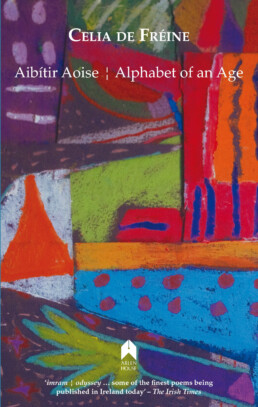
Celia de Fréine
Aibitir Aoise / Alphabet of an Age
ISBN: 9781851320271
Available from
Seánra Polannach, ina dtairgtear cuireadh don údar a bhfuil tugtha faoi deara i rith a s(h)aoil aige/aici a phlé, is ea an Leabhar Aibítre. Scríofa go hiondúil i bprós, tá sé athchóirithe i bhfoirm fhileata anseo. Míreanna dírbheathaisnéiseacha, mar aon le tuairiscí orthu siúd a bhfuil clú agus cáil bainte amach acu, a bhíonn faoi chaibidil go hiondúil ann. Lúbtar an dearcadh seo agus, cé go n-ainmnítear daoine a raibh baint acu le saolú dánta áirithe, is ar ghné fhileata an tsaothair a dhírítear. Toisc go bhfuil an seánra aistrithe go Gaeilge, ní aithnítear ach na hocht litreacha déag a bhain go traidisiúnta le haibítir na teanga sin.
The Alphabet Book is a Polish genre that invites the author to discuss what (s)he has observed during his/her life. Usually written in prose, it has here been adapted to poetic form. Autobiographical sketches and accounts of the famous are often the subject of the genre. Liberties have been taken with this approach, and while people who inspired certain poems are mentioned, the focus is on the poetic aspect of the work. As the genre has been transposed to Irish, it recognises only the eighteen letters traditionally found in that language’s alphabet.
A Last Loving
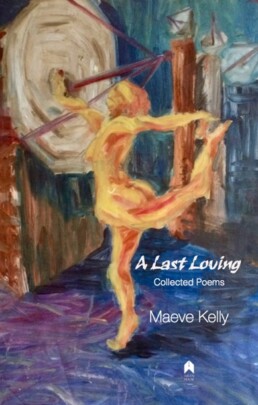
Maeve Kelly
A Last Loving: Collected Poems
ISBN: 9781851321483
A Lantern in the Dark
for Gerard
I have shut the shutters,
clipped the locks
and put the cat out,
kissed your beard
and helped you to your bed.
Eighty now and the years
bend you like a bow,
a sprung arch,
a willow wand,
bones chiselled to a new arc.
Sweetheart I know
the way you grow
not old but with your old
lightness still showing,
a lantern swinging in the dark.
Maeve Kelly is the author of two novels: Necessary Treasons (Michael Joseph, 1985) and Florrie’s Girls (Michael Joseph, 1989); two short story collections, A Life of Her Own (Poolbeg Press, 1976) and Orange Horses (Michael Joseph, 1990/Tramp Press, 2016); a satirical feminist fairytale, Alice in Thunderland (Attic Press. 1993) and three collections of poetry, including Resolution (Blackstaff Press, 1986) and Lament for Oona (Astrolabe Press 2005). Born in Dundalk in 1930, she lives in Limerick. Over the past 50 years Maeve has written out of her own experience as a woman, wife, mother, nurse, farmer and feminist activist and hers is a truly unique voice in Irish literature.
Cover artwork by Oona O’Brien Kelly, courtesy of Maeve Kelly
Aimsir Arsa
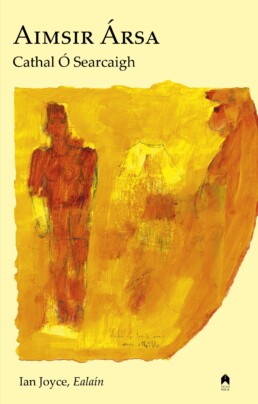
Cathal Ó Searcaigh
Aimsir Arsa
ISBN:
9781851320462 limited edition hardback
9781851320660
“Cnuasach tathagach is ea é i ngach slí, mórdhánta ann, mórthéamaí á n-ionramháil go maorga, an friotal is an stíl ag teacht go haoibhinn leis na téamaí ann agus ceol, a dhuine, ceol na teanga a mhúsclódh nó a shuaimhneodh an t-anam go máistriúil. Tá dánta ann a léifear go brách, fad is atá fíorfhilíocht á leamh”
– Gabriel Rosenstock (Foinse, 2012)
Glactar leis go coitianta go bhfuil An tAm Marfach ina Mairimid (Arlen House, 2011) ar an chnuasach filíochta is fearr a foilsíodh i nGaeilic le blianta beaga anuas. Seo anois mórchnuasach eile ó dhuine de phríomhfhilí na hÉireann.
Ó Searcaigh’s poetry is a strong indication that the Catholic/heterosexual axis of Irish identity, enshrined in the 1937 constitution, is no longer the only model of identity in town. Equally, his promotion of the Irish language is an important marker of the re-emergence of the national language as a serious player in the development of contemporary Irish poetry.
– John McDonagh (ed), A Fine Statement: An Irish Poet’s Anthology (Poolbeg, 2008)
His breaking down of stereotypes and deployment of gendered themes opened a new space in which to consider alternate sexualities within a contemporary Irish context.
– Jody Allen Randolph, Close to the Next Moment (Carcanet, 2010)
Cathal Ó Searcaigh
Ar na leabhair is déanaí uaidh tá Seal i Neipeal (Cló Iar-Chonnachta, 2004), Oíche Dhrochghealaí, dráma (Coiscéim, 2005), Mairimid Leis na Mistéirí agus Drámaí Eile (Arlen House, 2006), Gúrú i gClúidíní (Cló Iar-Chonnachta, 2006), Light on Distant Hills: A Memoir (Simon & Schuster, 2009), An tAm Marfach ina Mairimid (Arlen House, 2011), Pianó Mhín na bPréachán (Cló Iar-Chonnacht, 2011). Bhuaigh sé The Irish Times Literature Award i 2000 agus bronnadh The Ireland Fund Literary Award air i 2007 as feabhas a shaothair i nGaeilge. Roghnaíodh By the Hearth in Mín a’ Leá (Arc Publications, 2005) mar Poetry Book Society Recommended Translation sa Bhreatain i 2006. Is é eagarthóir Gaeilge Irish Pages é. Tá cónaí air i Mín a’ Leá faoi scáth na hEargala i dTír Chonaill. Tá sé ina bhall d’Aosdána.
After Image
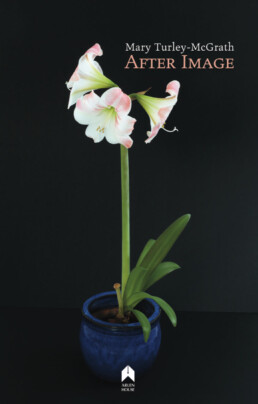
Mary Turley-McGrath
After Image
ISBN: 9781851322169
After Image, Mary Turley-McGrath’s fine new collection, is structured like a triptych central to which are her rapt contemplations of her natural surroundings and above all her meditations on the lake she visits often in all weathers for consolation, hope and inspiration. In many of the poems in the other two parts, she compassionately engages with historical disaster, displacement, personal loss and sorrow. Clearly aware of the darkness overshadowing the beauty of the natural world in our time, the poet confronts us with the full and paradoxical image of human experience.
– Eva Bourke
A Butterfly's Wing
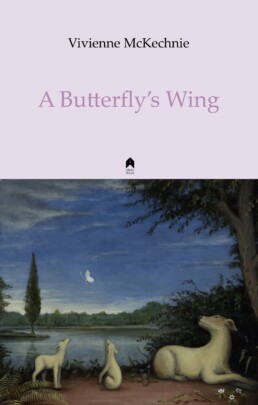
Vivienne McKechnie
A Butterfly’s Wing
ISBN: 9781851320929
A Butterfly’s Wing
Now I linger, looking longingly at every winged being,
knowing the impossibility of a hug,
knowing the fragility of love,
knowing the swiftness of life’s flight.
Now, never thinking of you in the earth,
I see you everywhere.
You, who did not lie down willingly,
but who life took in a sudden stroke.
I, who could only stroke your hand and watch
appalled as you slipped the noose of life
and left me numb.
You were silent and elusive, transient
as the butterfly which appeared at your funeral.
It rose delicately out of the lilies which adorned your coffin
allowing me the poise and sustenance of sudden beauty
to read for your departure.
Now I linger, looking longingly at the Painted Lady
which touches the petals of the rose
and realize that in the fragility of a butterfly’s wing
there is strength enough to fly.
Imbolg
Time plays a major role in Imbolg, Máighréad Medbh’s eighth book of poetry, which represents a period of gestation, in this case culminating in attempted personal change. Parts One, Two and Three were written between 2009 and 2016, but kernels of theme and tone resonate with her ‘Lockdown Diary’, in Part Four, written during March and April 2020.
The fifty days of ‘Lockdown Diary’ constitute a book in themselves, but are published here because the moment is apt. Arriving to them feels like the continuation of a story, except that there is no plot. As we read earlier in ‘Act’, ‘There is continuous arrival’. These are poems of movement, and arrival happens over and over as part of the nomadic thrust. ‘I walk./ Home is in repeated kisses of foot and ground’ (‘history’). In ‘Lockdown Diary’, these feet walk around a quiet housing estate, past the empty buildings of Airside Business Park.
The nomad travels a smooth space, where time becomes ‘a torn net/ intention slips through’ (‘Before the Knife’). The poems marking specific moments or periods – ‘the end of august’, ‘the second of april’, ‘Easter 2016’ – inhabit other, concentric moments, from prehistory to ‘time neither night nor day’. The moment of ‘the second of april’ involves the Fukushima disaster, which is not yet past. The same time and timelessness inform the almost Gothic narratives of ‘The Boat’ and the ‘murder poem’ with its ‘delible time’.
Change and choice with their shadows, doubt and fear, inhabit the book in differing forms, but sensual pleasure is always in the frame, and an abiding element of play. The entire is a kind of performance with a strong element of discourse, especially in ‘Lockdown Diary’. Beginning with a defiant re-birth from a womb of mirrors, the book’s action ends ironically – in the last lines of ‘Easter 2016’, where history is being forgotten, and in ‘Lockdown Diary’s’ final stanzas, where the promises of a new Gilead are complicated by the huge, intricate dynamics of the contemporary world.
But as usual there is no need to travel. These elements
transcend geography. I may sit and eat my bread
because merchants will come from Gilead laden with
balm and myrrh. And they will pause at my tent.
And there will be silver.
Mute/Unmute
Geraldine Mitchell is a poet for whom the alchemical possibilities of language are paramount. In her fourth collection, Mute/Unmute, she has moved away from the more personal territory of earlier work to engage with a planet which is ‘out of kilter’, both by its very nature and as a consequence of our relentless neglect and greed. Mitchell does not allow us to forget that we are ‘mortal on a mortal planet’. We are also reminded that without compassion and empathy, without preserving and honouring the memory of those who have gone before, our lives become empty and meaningless. Mitchell intersperses two sequences of poems, both bearing the title ‘Pour Out the Dark’, with a central section conjuring the life of a great-aunt who took her life almost a hundred years ago. By inviting us to imagine the life of a troubled individual, our responses to the poems in the first and third sections of this richly crafted collection are thrown into relief. In ways which are never didactic, through image, rhythm and sound, Mitchell leads us to see that a dark future is not inevitable and that, with due attention to the individual and to human suffering, by combating injustice, we can, and must, let in the light.
The Boiling Point for Jam
Here are poems pitch-perfect and assured, where sharp and tender observation is brought to us in strikingly-vigorous language. From the intimacy of personal loss, to war and its cruel consequences, from Fermanagh to Tehran, the poems in Lynda Tavakoli’s The Boiling Point for Jam are always surprising, always true, always made more by her choice of image and her unfailing lightness of touch. A remarkable collection.
– Geraldine Mitchell
The Boiling Point for Jam is an accomplished body of work from a poet whose reverence for nature is a constant and comforting aesthetic. In poems which explore themes of innocence and experience, Lynda Tavakoli’s empathy with smaller, everyday miracles is both inspirational and nurturing. A lyrical sensibility thrived from the sturdy roots of a rural upbringing gifts glimpses into an authentic world familiar, yet fresh and original. These poems traverse time and place, steeped in an emotional temperature that chimes in mind, body and soul. With language delicate as a blackbird’s song (‘Kitchen Comforts’) right through to visceral grief, ‘suit pockets spilling nettles/and the sea-spit dully freckled/in your hair’ (‘Shooting Pigeons’), this poet transforms the subtlest observations into powerful epiphanies.
– Eileen Casey
Here we find poems that could hold their own in a collection by any well-established poet. Take ‘The Big Freeze’, for example, with its beautiful ending in crow dialogue – ‘as one by one they picked words from the earth/and rested them upon the other’s mouth/like a coming melt of snow’, or the arresting ‘Forty-Three Grams’ which stands out as one of the finest poems I have read in a long time, or in ‘The Boiling Point For Jam’, exploring the celebration of endurance and the wading into the ordinary with a small promise of hope. There is a hint of Larkin’s ‘An Arundel Tomb’ here too in ‘Unearthed’ – ‘A coupling of corpses, not yet dust,/years passing across them/like ghosts through open portals,/unearthing more than just a smatter of bone’. These are earned poems forged in everyday experience that will resonate with anyone who exists on this side of the semi-permeable membrane between what some take for granted and the other. Words are carefully chosen from the toolbox – ‘waiting only for the joy of their release’ – in this refreshing collection from a new voice well worth reading.
– Ger Reidy
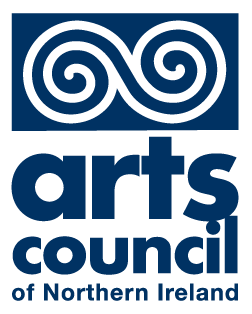
Supported by the Arts Council of Northern Ireland.
Bone Road
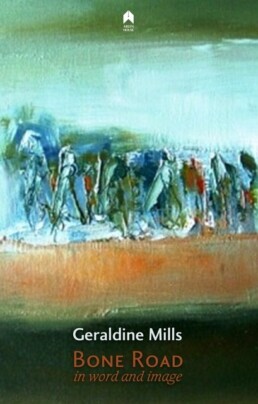
Geraldine Mills
Bone Road
ISBN: 9781851322152
Little was known about my maternal great-grandparents who emigrated to the US in the 1880s until I heard the name James Hack Tuke. Suddenly their story came rushing up for air. Mr Tuke, a Quaker, visited the west of Ireland during the Great Famine. Haunted by what he saw, he returned in 1880 to see it was still ravaged by congestion and poverty. He believed that one solution to such destitution was an Assisted Emigration Scheme. Known as the ’Tuke Fund’, it was a voluntary scheme which supported whole families going, with their passage paid, a set of new clothes and landing money when they arrived. Nearly 10,000 people emigrated from Connemara and County Mayo between 1882–4. On 22 June 1883 my great-grandparents, Philip and Mary Heveron, and their six children, one of them my grandmother, left Elly Bay in North Mayo on the SS Waldensian,arriving into Boston Harbour on 4 July. They were ticketed to Warren, Rhode Island, where my great-grandfather was given work in the cotton mills. However, they couldn’t settle and now with seven children they made the journey back. My great-grandfather went directly to County Mayo. The rest of the family were admitted to the Cork workhouse on 10 November 1884. They left in April 1885 and were reunited in Belmullet, County Mayo. This verse memoir attempts to chart the course of their leave-taking and homecoming through documented fact and imagined memory in order to retrieve those lost parts of my family’s history.
